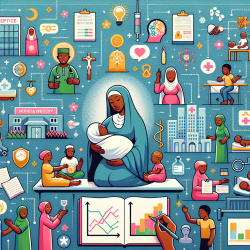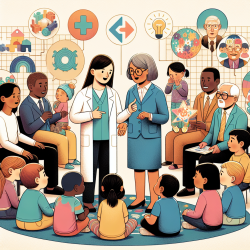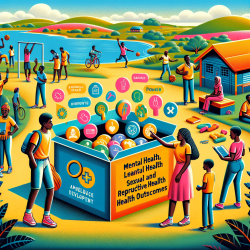Introduction
In the quest to improve maternal health outcomes, it is crucial to understand the factors influencing healthcare utilization. The study titled Evaluating Religious Influences on the Utilization of Maternal Health Services among Muslim and Christian Women in North-Central Nigeria provides insights into the role of religious beliefs in healthcare decisions. This blog explores the findings of this study and how practitioners can leverage these insights to enhance service delivery.
Key Findings
The study involved 68 women from rural and periurban areas in North-Central Nigeria, comprising 72% Christians and 28% Muslims. Contrary to expectations, religious beliefs were not significant barriers to the uptake of maternal health services. Instead, socioeconomic factors, such as distance from healthcare facilities and dependence on male partners, were more influential.
Implications for Practitioners
Practitioners should focus on addressing the socioeconomic barriers identified in the study. Here are some actionable strategies:
- Enhance Accessibility: Develop community-based healthcare services to reduce travel distances for rural women.
- Engage Male Partners: Educate and involve male partners in maternal health decisions to ensure their support in accessing healthcare services.
- Improve Healthcare Attitudes: Train healthcare providers to adopt positive attitudes and professional conduct, as these were preferred over gender or religious affiliations.
- Leverage Mentor Mothers: Utilize Mentor Mothers to improve service uptake and retention among HIV-positive women, as they were well-accepted across religious groups.
Encouraging Further Research
While this study provides valuable insights, there is a need for further research to explore:
- The influence of religious beliefs on healthcare utilization in different regions with varying religious compositions.
- The role of socioeconomic status in healthcare access among different religious groups.
- The impact of religious leaders' attitudes on community health behaviors.
Conclusion
Understanding the nuanced influences of religion on healthcare utilization can guide more effective interventions. By focusing on socioeconomic barriers and leveraging community resources like Mentor Mothers, practitioners can enhance maternal health outcomes in Nigeria.
To read the original research paper, please follow this link: Evaluating Religious Influences on the Utilization of Maternal Health Services among Muslim and Christian Women in North-Central Nigeria.










